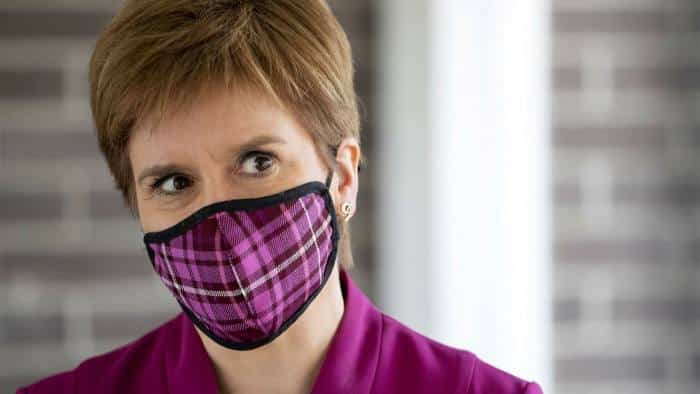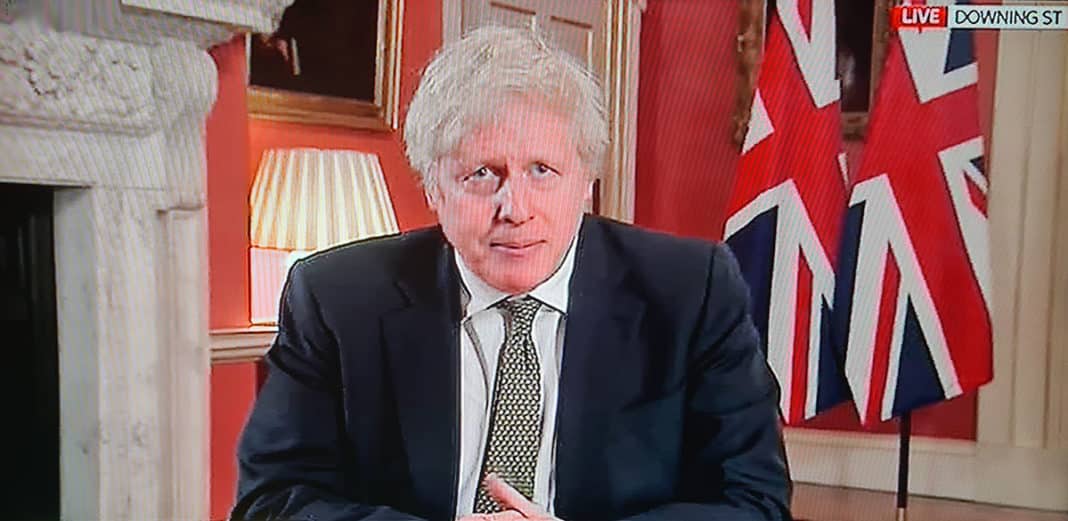- Schools will be closed and families will not be able to leave their homes except for exceptional reasons
- Scotland orders home confinement from this midnight to January 31
- UK now warns that South African variant is ‘incredibly worrying’
- Vaccines may not work against the South African variant of the coronavirus, making it “much more concerning”
Monday has been bittersweet for the United Kingdom. Just hours after the country celebrated the start of vaccination program with its own AstraZeneca and the University of Oxford vaccine, Prime Minister Boris Johnson has announced England’s entry into a new strict lockdown, similar to that first introduced in March.
Despite the Government’s intention to vaccinate at a rate of two million people per week, the joy of the earlier announcement was eclipsed on Monday evening by the appearance in 10 Downing Street of Prime Minister Boris Johnson and his announcement at a press conference of the new restrictions to prevent the further spread of the virus, which the authorities now say is “out of control.”
The Labour party had asked the premier on Sunday to order a third confinement of the entire nation, after the barrier of 50,000 positive daily cases was exceeded for the sixth consecutive day and after learning that hospitals are so saturated that there are Covid-19 patients who are being treated in ambulances.
UK Chief Medical Officers and England’s NHS Medical Director said in a statement that ‘there is a risk that the NHS will be overwhelmed sometime during the next 21 days’ as’ there are currently very high rates of community transmission, with a substantial number of Covid-19 patients in hospitals and in intensive care, “adding that” cases are increasing in almost all parts of the country, largely driven by the new variant of this most transmissible »virus.
The measures announced by Johnson, similar to the end of March, will go into effect at midnight tonight and members of parliament are expected to debate and vote on their approval tomorrow and Wednesday.
Thus, in addition to the fact that all commerce, restaurants, hotels and entertainment will be closed, people will be asked to work from home. Schools will be closed and, apart from key workers, families will not be able to leave their homes except for exceptional reasons, and of course they will not be able to mix with any other people.

The Chief Minister of Scotland, Nicola Sturgeoon, issued the order to stay home on Monday morning, arguing that the new strain of the virus, which is far more contagious, is causing an unstoppable increase in the number of cases.
Sturgeon said she is “more concerned about the situation we face now than at any time since March last year,” and that the new strain of coronavirus accounts for half of all new cases. In addition, she warned that the “strong trend” in the increase in infections threatens to put “significant pressure” on hospital services.
As if the outlook was not bleak enough, Health Minister Matt Hancock said he was “incredibly concerned” about the new mutation that is believed to have originated in South Africa and is now circulating in the UK as well, and against which current vaccines may not be effective.
John Bell, professor of medicine at Oxford University, also expressed this in a radio interview, explaining that the changes in this strain are “quite substantial changes in its structure.”
“The mutations associated with it involve quite substantial changes in the structure of the protein,” changes that affect the way the virus binds to human cells, which in turn could affect the effectiveness of vaccines that are already being administered to the population.
‘The real question is whether the vaccines are enough to neutralise the virus. Or, in the presence of the mutations, will they be disabled? He asked.
Bell further warned that “we will see many variants” of the virus, but that the good news is that existing vaccines could adjust to these changes.





